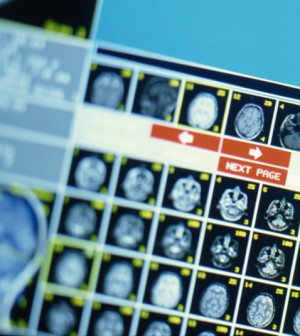- Could Your Grocery Store Meat Be Causing Recurring UTIs?
- Are You Making This Expensive Thermostat Error This Winter?
- Recognizing the Signs of Hypothyroidism
- 10 Strategies to Overcome Insomnia
- Could Artificial Sweeteners Be Aging the Brain Faster?
- Techniques for Soothing Your Nervous System
- Does the Water in Your House Smell Funny? Here’s Why
- Can a Daily Dose of Apple Cider Vinegar Actually Aid Weight Loss?
- 6 Health Beverages That Can Actually Spike Your Blood Sugar
- Treatment Options for Social Anxiety Disorder
Health Highlights: Oct. 3, 2016

Here are some of the latest health and medical news developments, compiled by the editors of HealthDay:
Japanese Scientist Wins Nobel for Medicine
Japanese researcher Yoshinori Ohsumi has won this year’s Nobel Prize in medicine for his groundbreaking work on the life of the cell.
According to the Associated Press, the Karolinska Institute in Stockholm — which bestows the prizes — gave the award to Ohsumi for his “brilliant experiments” in the 1990s on a cellular process called autophagy. Autophagy is the mechanism by which cells recycle their content.
Disruptions in autophagy have been tied to a number of human illnesses such as Parkinson’s disease, diabetes and cancer, the Karolinska Institute said.
While researchers have known about autophagy for half a century, its “fundamental importance in physiology and medicine was only recognized after Yoshinori Ohsumi’s paradigm-shifting research in the 1990s,” Karolinska noted in its citation.
Ohsumi was born in 1945 in Fukuoka, Japan. He is a professor at the Tokyo Institute of Technology. The Nobel carries a prize worth about $930,000, the AP said.
Copyright © 2026 HealthDay. All rights reserved.










